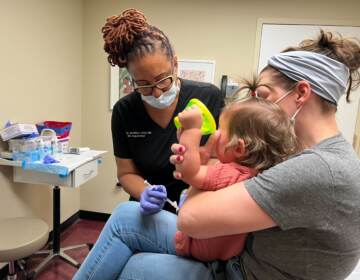City’s drive-thru coronavirus testing site opens in South Philly
The site will test those with the most common symptoms of COVID-19 — a cough and fever — and prioritize health care workers and those over 50.
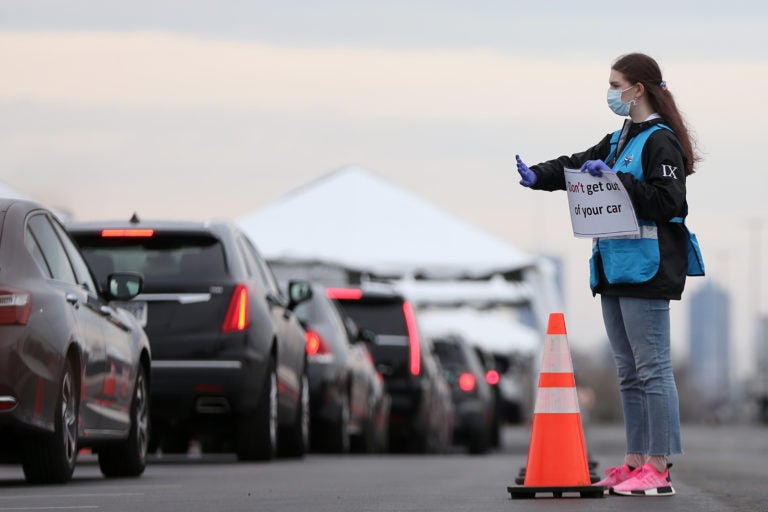
Philadelphia Medical Reserve Corps volunteer Emma Ewing, a sophomore at Temple University, directs cars at the city's coronavirus testing site next to Citizens Bank Park in South Philadelphia on Friday, March 20, 2020. (Tim Tai/The Philadelphia Inquirer)
On Friday afternoon, the Philadelphia Department of Public Health opened a drive-through site at Citizens Bank Park in South Philadelphia to test people for the coronavirus.
Because testing supplies are limited, Health Commissioner Thomas Farley said they had to create testing criteria. To be eligible, people must be experiencing the most common symptoms of COVID-19, the illness caused by the virus — a dry cough and a fever. Priority will be given to health care workers.
“Nobody wants a health care worker who is sick taking care of you,” said Farley. So far, 10 of the city’s 67 confirmed cases are among health care workers.
After that, preference goes to people over 50, because that age group is most at risk of developing serious symptoms from the virus.
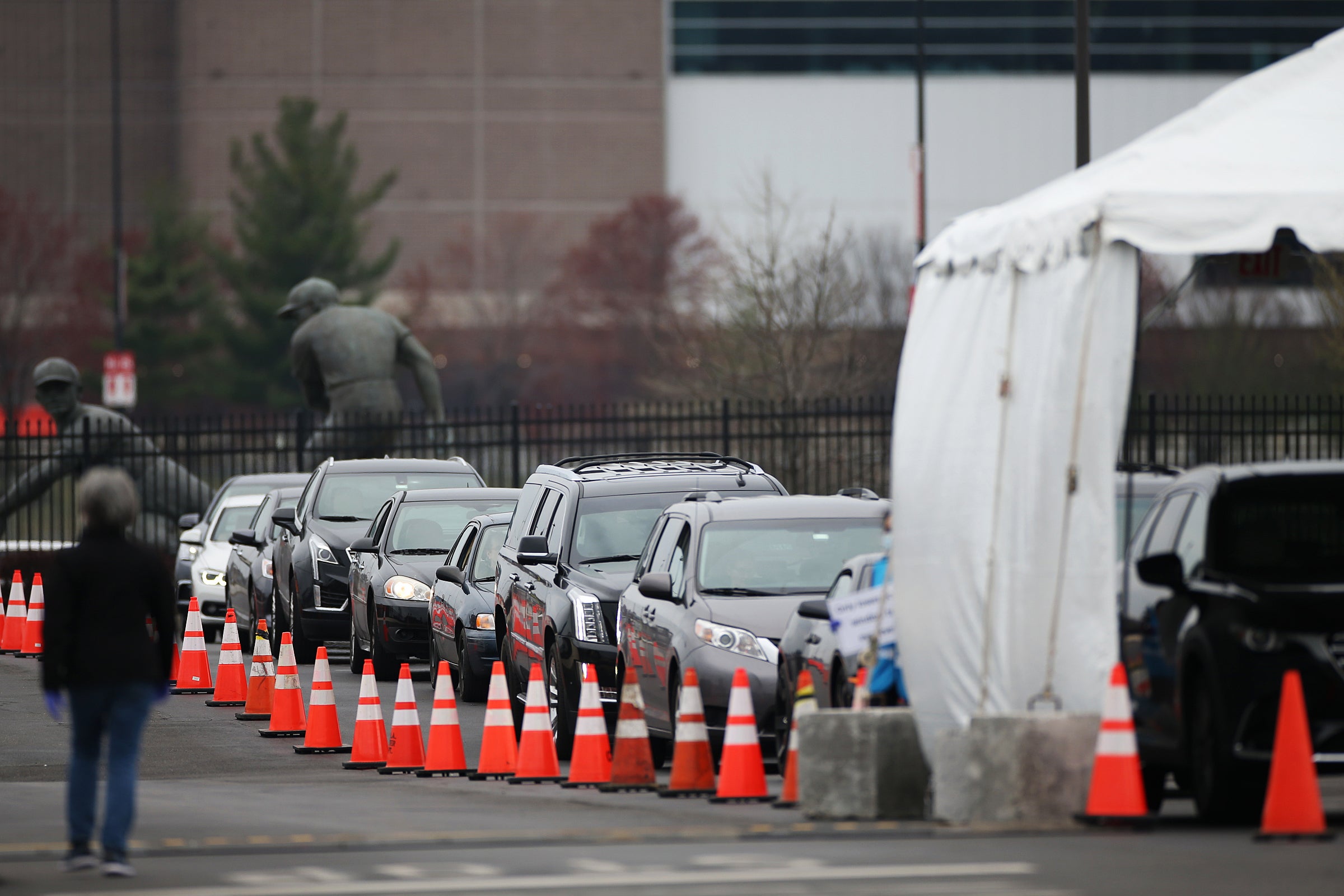
On opening day, the city had the capacity to test 2,500 people, which Farley said he hopes will expand in the coming days. Testing will continue every day from 2 to 6 p.m. while supplies last. Patients do not need to be residents of Philadelphia.
Those who want to be tested do not need a prescription or a referral, but should be prepared to wait in line.
“This is the first day of operation, and like the first day of a restaurant when it’s opening up, the service might be slow while we work out the system,” said Farley. “People may have to come here and wait, so expect that.”
By 3 p.m. Friday, a line of 20 about cars wound around the front gate to the testing site.
Once at the front of the line, a patient will pass through three different tents.
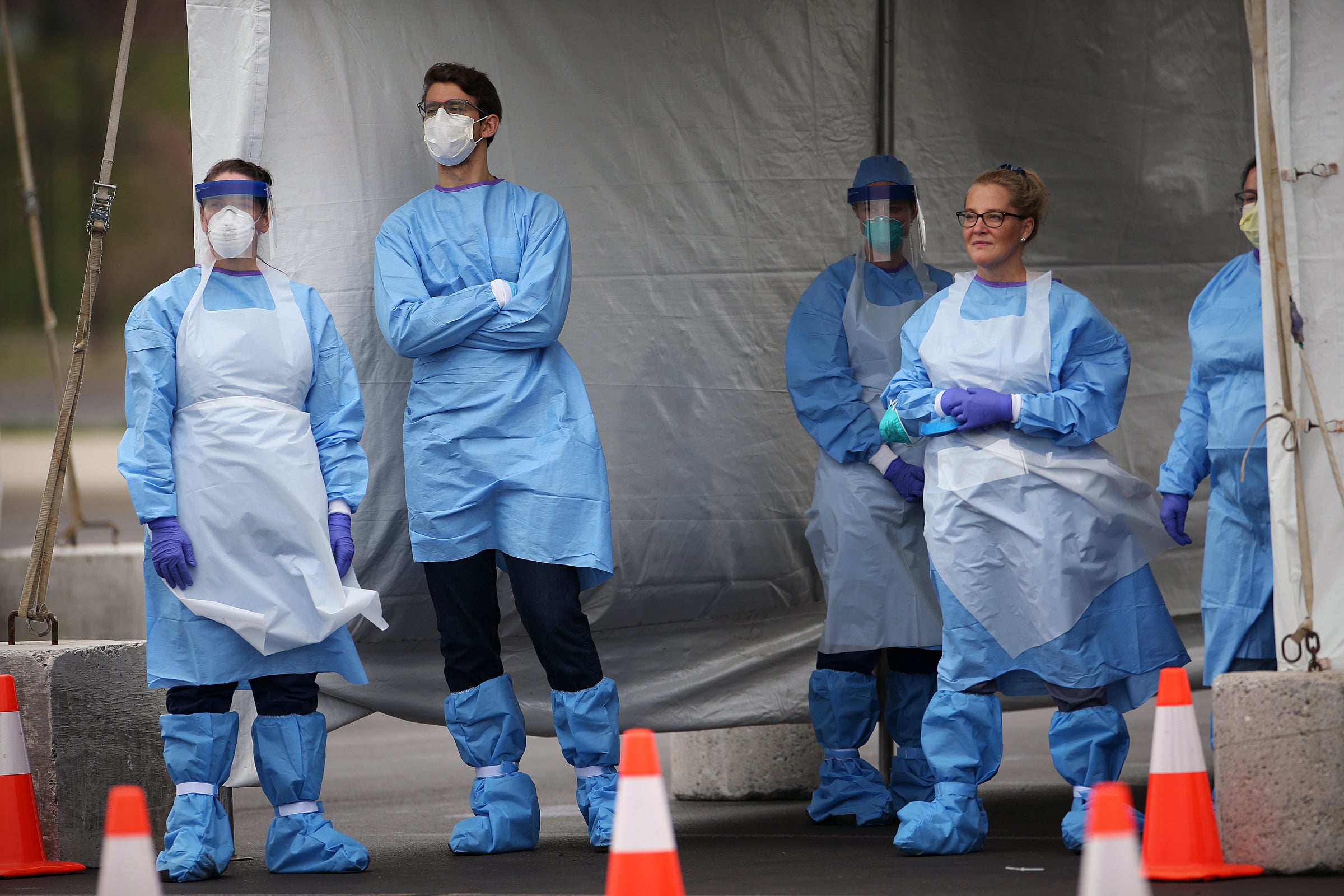
In the first, they’ll be asked about their symptoms, their profession, and their age to determine if they are eligible for a test. Farley said those who do not meet the criteria may be turned away.
If eligible, a volunteer will escort the car to the second tent: the information station. There, volunteers from the Philadelphia Medical Reserve Corps will ask questions through the patient’s window about his or her medical history, insurance status, and basic contact information.
“The worst that could happen is we have a positive result and we can’t reach you,” said Farley.
The last stop is the swab tent. To test for the coronavirus, health workers fully covered in personal protective equipment will reach through the open window and stick a swab up the patient’s nasal cavity to capture mucus and secretions from the nose — a standard procedure to identify upper respiratory infections.
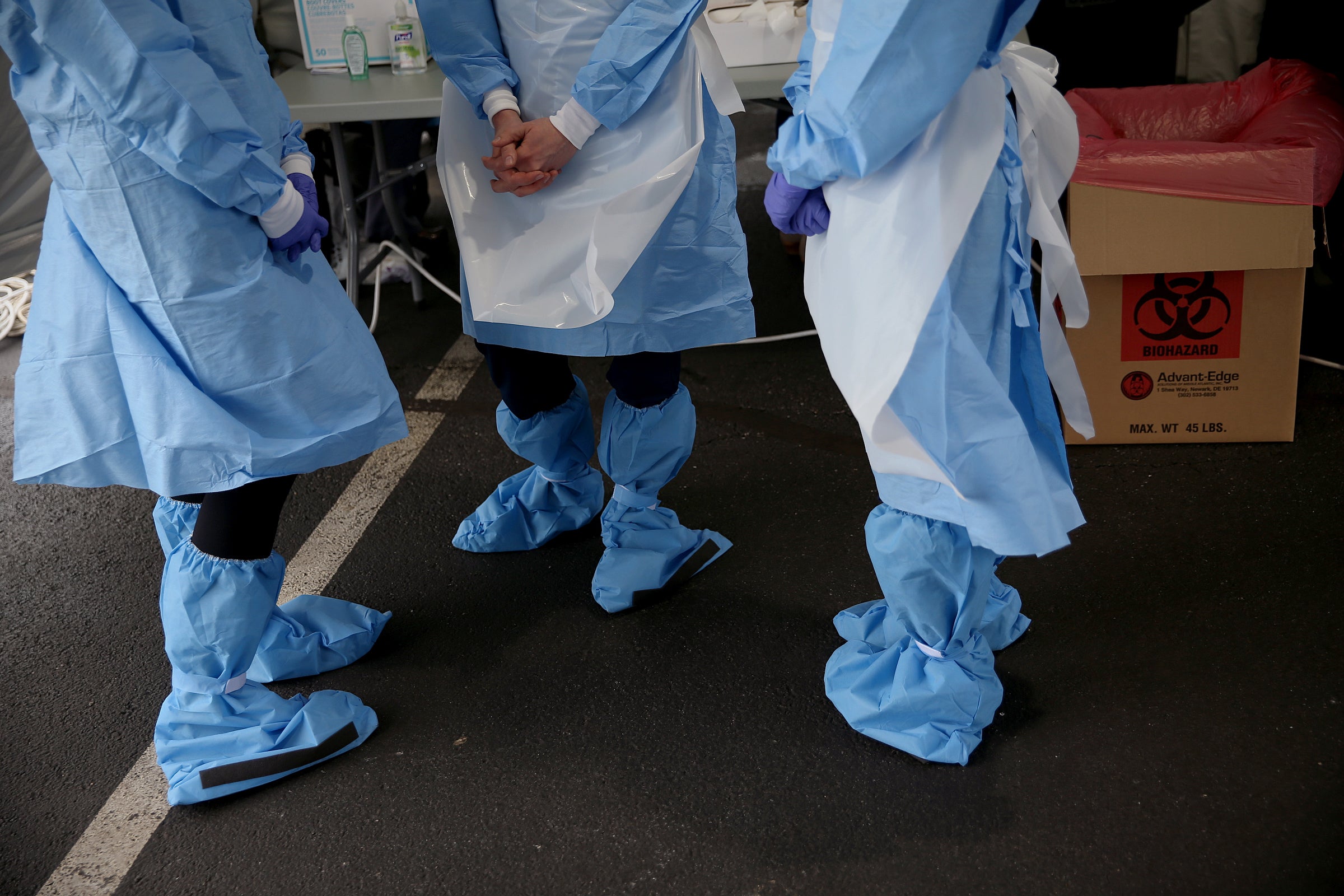
From there, it will take anywhere from two to six days to get the test results back. Almost everyone will be sent home to wait for results, unless medical professionals recognize that a person needs emergency care immediately.
Farley stressed that his department wanted to expand the city’s capacity for testing by setting up this site, but that it should be treated as a fallback option.
Those who are worried they may have the virus should first call their health care providers or an emergency room where they’ve been seen in the past and request to be tested. Farley said there are 20 such sites up and running in the city today, with more coming online soon. He added that the city hoped to add more sites in the near future.
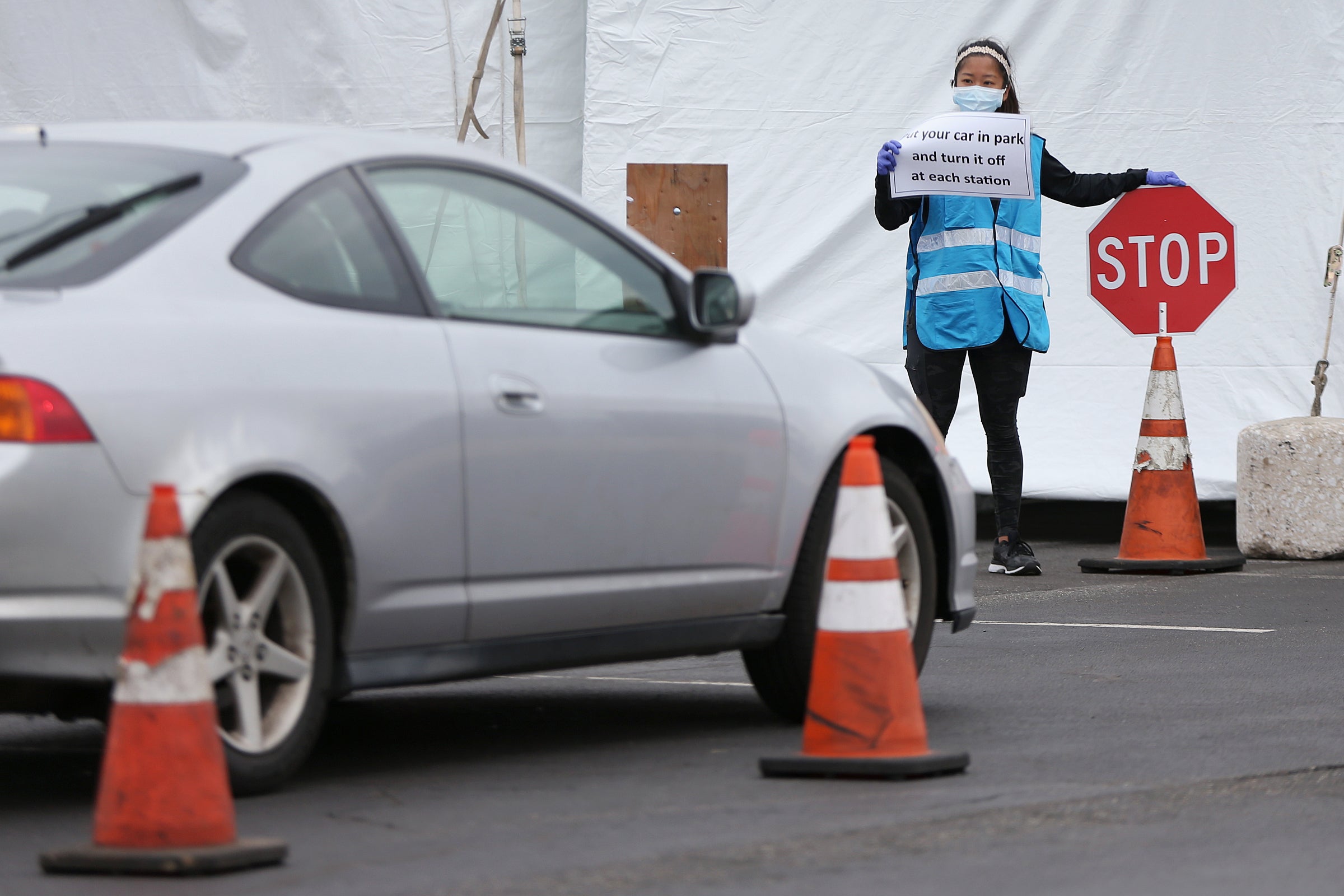
Many Philadelphia-area hospital systems have their own drive-through testing sites, which require a doctor’s referral. Others are gearing up for a surge of patients by setting up tents outside their emergency departments so that patients with mild symptoms can walk up, be tested, and never have to set foot in the hospital.
Liz Dunlap was one of the first people waiting in line Friday afternoon. She didn’t meet the testing criteria — she’s not a health care worker and she’s not experiencing symptoms. She was between a rock and a hard place, though. Dunlap said she works in a warehouse where a lot of her coworkers are coughing, and her supervisor told everyone to get tested before returning to work. But without symptoms, she was having a hard time getting approved for a test. Her warehouse is operational, yet she’s been out of work for four days.
“I’m just trying to get back a little bit of income,” Dunlap said.
Many waiting in their idling cars wore face masks or coughed audibly through their open windows.
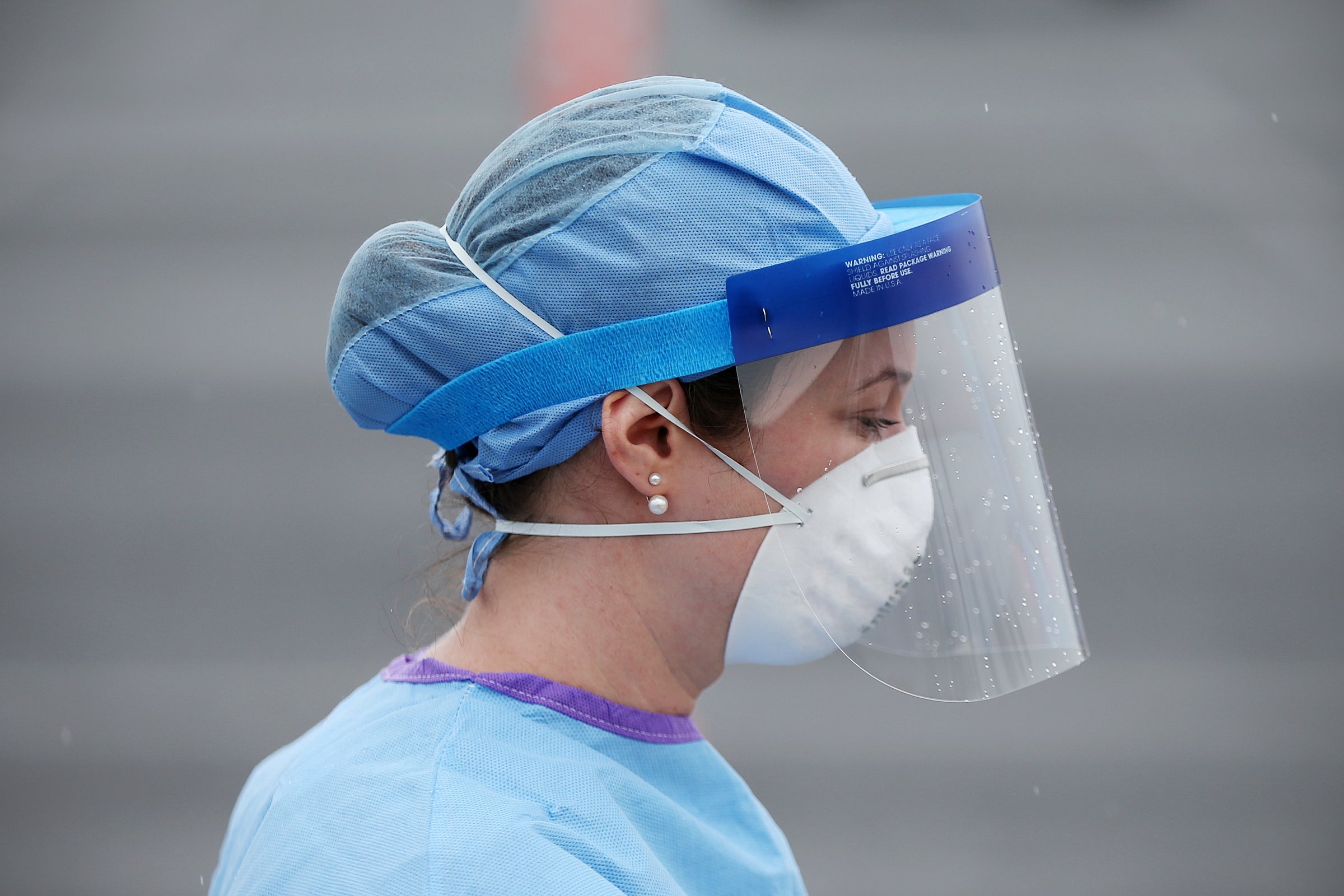
Kirby Trik, an anesthesiologist, said he’s had a cough for a few days and is worried he was exposed during intubation procedures.
“I’ve had a lot of people breathing in my face,” said Tirk. He normally rotates between hospitals in the Philadelphia area, but hasn’t worked for a few days as elective surgeries have been canceled in hospitals throughout the region.
“I’m 69 years old, and yesterday and the day before were the first days in my life I did not have a job,” he said.
The Citizens Bank Park site will be staffed by up to 50 health personnel at a given time, plus 30 Pennsylvania Task Force One members from the Fire Department and staff from the Office of Emergency Management.
The health workers come from the city health department and the Philadelphia Medical Reserve Corps, a group of more than 200 volunteers established after 9/11 who are called upon in disasters. Fire Commissioner Adam Thiel said that, for now, staff has enough personal protective equipment, or PPE, and that his department has been working with the federal government to get more. The shortage of PPE across the world, caused by a broken supply chain, has health care workers worried about protecting themselves when caring for infected patients.

That’s why Farley said the best thing someone can do right now to support health care workers is join the Medical Reserve Corps. Doctors, nurses and those without medical training willing to help out in clinical settings are able to volunteer.
“These health care workers are going to work very hard for a very long time,” said Farley. “A number of them are going to get sick, a number of them are going to need to be quarantined. So they’re going to need to be spelled off by other people.”
Thiel piped in, too. “Even easier than that,” he said, “stay home.”
WHYY is your source for fact-based, in-depth journalism and information. As a nonprofit organization, we rely on financial support from readers like you. Please give today.


![CoronavirusPandemic_1024x512[1]](https://whyy.org/wp-content/uploads/2020/03/CoronavirusPandemic_1024x5121-300x150.jpg)


